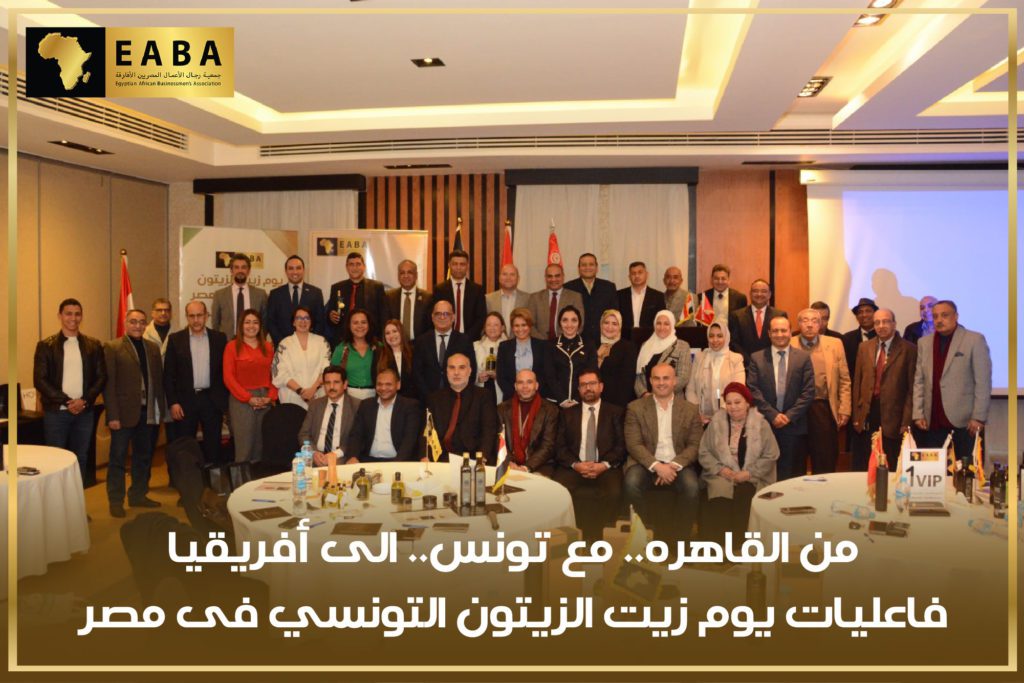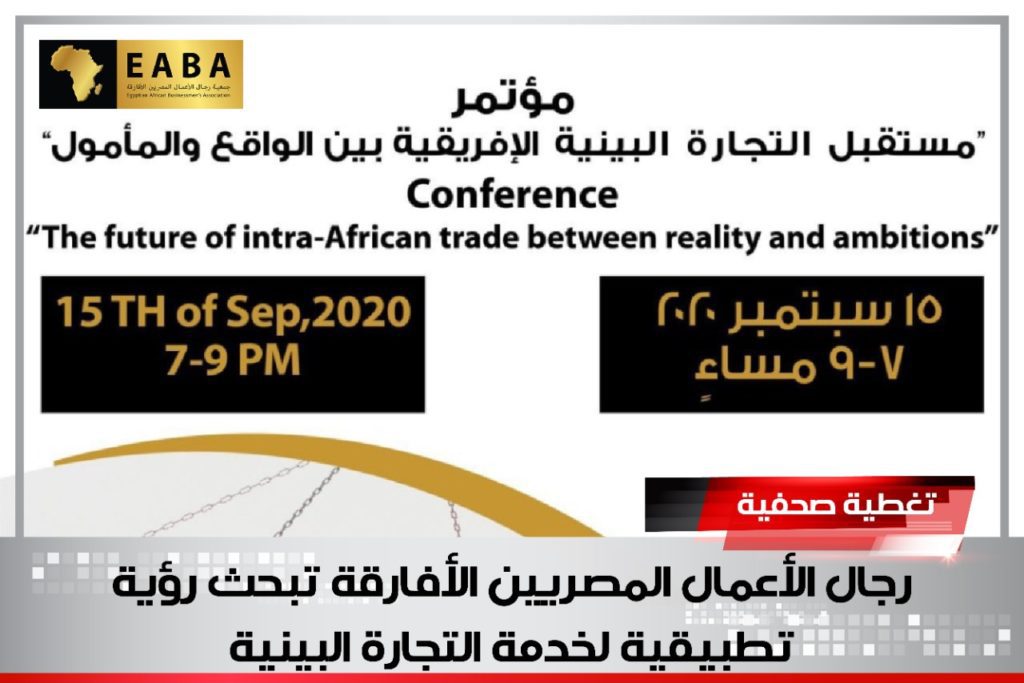In continuation of the efforts of the Egyptian-African Businessmen Association (EABA), headed by Dr. Yousrey Elsharkawi, to make efforts to enhance joint cooperation between African countries, especially the Tunisian society, with the Embassy of the Republic of Tunisia in Cairo. Tunisian olive oil exporters have extensive experience and international history in this public sector.
This visit comes with good preparation, organization and coordination led by His Excellency Ambassador Mohamed Ben Youssef, Ambassador of the Republic of Tunisia in Cairo. This visit will hold many bilateral meetings between Egyptian olive producers and manufacturers and importers of distinctive foods from the Egyptian side, as well as senior traders, investors and exporters from the Tunisian side in the presence of government representation The Ministry of Commerce and Industry, the Standards and Metrology Authority, the General Organization for Export and Import Control, the Agricultural Bank and a group of senior businessmen, unions and associations in the two countries.
Dr. Yousrey Elsharkawi chairman of the Egyptian-African Businessmen Association, stressed that this meeting comes as part of a series and intensive business plan with all African countries with the aim of supporting and enhancing joint trade and investment cooperation between African countries, which contributes to supporting the African economy.
He pointed out that this meeting specifically aims at general knowledge of the Tunisian experience in the production, packaging and packaging of olive oil and its presence in the global markets, as well as discussing the prospects for joint investment cooperation between Egyptian farmers and Tunisian and African producers and exporters and how to use this to go to African markets and open new markets in an integrative way.
The meeting also aims to create cooperation between the Egyptian table olives with abundant production and high quality and the advanced Tunisian olive oil in global markets in a new vision that creates integration, not competition, in international markets.
Elsharkawi stressed that the field of olive production in Egypt for the table occupies an advanced position, and the field of olive oil production in Tunisia occupies a distinguished global rank, and the volume of Tunisian olive oil production reached 6% of the volume of global olive oil production, and olive oil exports exceeded 850 million dollars annually, and the percentage of farmers More than 60% of the olive producers in the agricultural sector are Tunisian farmers.
Elsharkawi stated that we aim to enter common markets within the continent, next to the markets in which Tunisian olive oil is located, at the forefront of which are currently global markets such as Spain, Italy and France with 62%, America and Canada with 13%, then the remaining percentage comes to the markets of Saudi Arabia and the UAE, and what Egypt has achieved contributes to the success of this Of the production of 750 thousand tons of olive oil annually and 30 thousand tons of olive oil, and it exports only 6-7 thousand tons of olive oil, while the export volume of Tunisian olive oil reaches 240 thousand tons annually and they have 1700 mills with multiple and different cases and technologies and more than 200 strong companies whose source is distinguished and a global rank, Tunisia has more than 20,000 products in the world markets.
The activities of the Tunisian Olive Oil Day will start in Egypt on March 13, 2022, in which a high-level delegation representing the Ministry of Trade and Industry, the Standards and Metrology Authority, and the Export and Import Control Authority will participate in it, with the aim of welcoming and shedding light on all the procedures that Egypt is taking regarding the implementation of international agreements and customs procedures. Oversight mechanisms on ensuring sustainability, ease and overcoming of obstacles between the two countries.
Elsharkawi affirmed the association’s keenness to open the door and receive all investors in the agricultural sector from the brothers in the countries of the continent from traders and farmers in different crops so that the maximum benefit from the relative advantages and value added to the varieties produced within the continent and full keenness to maximize the economic benefit from the continent’s resources, which has become important In activating the inter-trade exchange on the ground, complementing the role and orientations of the Egyptian political leadership and the support it provides for joint Arab and African action



